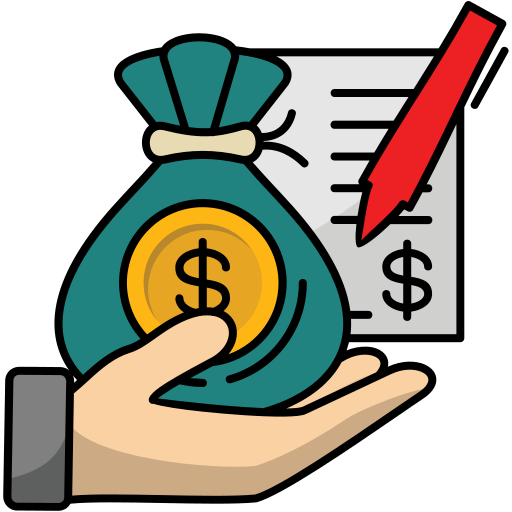For drug users, as well as their families and friends, it is essential to gain knowledge of the drug rehab process. This comprehensive guide will delve into various stages and approaches in the drug rehab process, offering insights into residential treatment, day treatment, and outpatient services.
Moreover, we'll explore integrated dual-diagnosis programs that address co-existing disorders alongside substance abuse issues. By shedding light on these critical aspects of the drug rehab process, this post aims to empower readers with the knowledge to make informed decisions about recovery options.
In addition to exploring different treatments and programs available for those battling addiction, we will also discuss support systems and coping strategies essential for long-term success in recovery. From engaging in physical activities to practicing mindfulness techniques or pursuing creative outlets – adopting healthy habits can significantly improve one's chances of maintaining sobriety after completing a drug rehab program.
Stages and Approaches in Drug Rehab Process
The drug rehab process involves various stages and approaches, including behavioral counseling, family therapy, residential treatment, day treatment, outpatient care, long-term follow-up care as well as addressing any co-occurring mental health issues. These treatments cater to the diverse needs of individuals seeking help with their addiction.
Residential Treatment: Living at the Facility During Recovery
Residential treatment programs provide a structured environment where patients live at the facility for an extended period while receiving intensive support and therapies. This type of program is ideal for those who require round-the-clock supervision or have severe addictions that necessitate a higher level of care. The duration of stay is contingent upon the individual's needs, yet usually spans from a month to several months.
Day Treatment: Attending Sessions during the Day while Returning Home at Night
In contrast to residential programs, day treatment services allow patients to attend therapy sessions during daytime hours before returning home each evening. This option provides flexibility for those who cannot commit to full-time residency due to work or family obligations but still need comprehensive support throughout their recovery journey. Day treatment usually includes group therapy sessions along with individual counseling and may also incorporate additional services such as vocational training or educational classes.
Outpatient Services: Flexible Scheduling Options for Those Who Cannot Commit to Full-Time Programs
- Flexible scheduling: Outpatient services offer greater flexibility by allowing clients access only when needed without requiring them into a full-time commitment like residential or day treatment programs.
- Individualized care: Outpatient services can be tailored to the specific needs of each patient, providing personalized support and guidance throughout their recovery journey.
- Affordability: Due to the reduced level of supervision and resources required compared to residential or day treatment options, outpatient services are often more affordable for those seeking help with addiction.
To learn more about these different stages and approaches in drug rehab process, you may visit this comprehensive guide on finding drug abuse treatment.
The various stages and approaches in the drug rehab process are important to consider when seeking treatment, as they can provide tailored options for each individual's needs. By addressing co-existing disorders through integrated dual diagnosis programs, individuals may be able to maximize their recovery potential and increase the likelihood of successful outcomes.
Editor's Note:
The drug rehab process involves various stages and approaches, including residential treatment, day treatment, and outpatient care. These treatments cater to the diverse needs of individuals seeking help with their addiction. Residential programs provide a structured environment where patients live at the facility for an extended period while receiving intensive support and therapies, while outpatient services offer greater flexibility by allowing clients access only when needed without requiring them into a full-time commitment like residential or day treatment programs.
Integrated Dual Diagnosis Programs
Addressing underlying mental health problems simultaneously with substance abuse issues is essential when undergoing rehabilitation. This can be achieved through integrated dual-diagnosis programs that treat both conditions concurrently. By treating these co-existing disorders together, patients have a better chance of achieving lasting sobriety.
Importance of addressing co-existing disorders
Studies suggest that failure to treat both addiction and mental health issues can impede the healing process for those battling substance misuse. In fact, research has shown that nearly 50% of people with a substance use disorder also suffer from a mental illness. Ignoring one aspect while treating the other may lead to relapse or worsened symptoms in either condition.
- Better understanding: Addressing both conditions allows healthcare professionals to gain insight into how they might be interconnected and tailor treatment plans accordingly.
- Faster progress: Treating both conditions at once ensures that neither issue becomes an obstacle in the recovery journey, leading to faster progress toward sobriety and improved overall well-being.
- Lasting results: Comprehensive care reduces the likelihood of relapse by equipping patients with coping strategies for managing their dual diagnoses effectively throughout their lives.
Benefits of integrated dual diagnosis programs
An integrated approach offers numerous advantages over traditional rehab methods that only focus on addiction or mental health issues separately. Some of the key benefits include:
- Personalized treatment plans: Dual diagnosis programs take into account each patient's unique needs and circumstances, ensuring that they receive a customized plan tailored to their specific situation.
- Collaborative care: These programs often involve a team of specialists working together to address both addiction and mental health concerns simultaneously, leading to more comprehensive and effective treatment outcomes.
- Better support networks: Integrated dual diagnosis programs encourage patients to build strong support systems with fellow peers who are also dealing with co-occurring disorders, fostering an environment where individuals can share experiences and learn from one another.
Incorporating integrated dual diagnosis programs into drug rehab processes is crucial for addressing the complex interplay between substance abuse and mental health issues. By treating these conditions concurrently, healthcare professionals can provide more holistic care that leads to lasting recovery success for patients on their journey toward sobriety.
Integrated dual diagnosis programs are essential for treating co-existing disorders, as they provide an effective approach to address both mental health and substance abuse issues. By engaging in support systems and coping strategies such as physical activities or creative outlets, individuals can develop the skills necessary to sustain long-term recovery from addiction.
Editor's Note:
Integrated dual diagnosis programs are essential for addressing both substance abuse and underlying mental health issues simultaneously, as nearly 50% of people with a substance use disorder also suffer from a mental illness. Treating both conditions at once leads to faster progress towards sobriety, personalized treatment plans, collaborative care, and better support networks.
Support Systems and Coping Strategies for Recovery
Recovering from drug addiction can be a difficult process, yet having the backing of supportive people and beneficial coping mechanisms may drastically enhance one's probability of success. By engaging in healthy activities, practicing mindfulness techniques, and pursuing creative outlets, individuals can develop new ways to manage stress without resorting back to addictive behaviors.
Engaging in Physical Activities like Exercise or Yoga
Physical activity has been proven to have numerous mental health benefits, including reducing anxiety, depression, and negative mood while improving self-esteem and cognitive function. Incorporating regular exercise or yoga sessions in sober living communities can help you build resilience against cravings and triggers associated with substance abuse. Moreover, group fitness classes or joining local sports teams provide an opportunity to connect with others who share similar interests – creating a supportive community during recovery.
Practicing Mindfulness Techniques such as Meditation or Deep Breathing Exercises
Mindfulness practices are powerful tools that promote relaxation by focusing on the present moment rather than dwelling on past mistakes or worrying about future challenges. Research shows that mindfulness-based interventions, such as meditation or deep breathing exercises, may be helpful in reducing substance use relapse rates among those recovering from addiction. Additionally, these techniques help increase self-awareness of emotions related to cravings – empowering individuals to make healthier choices when faced with potential triggers.
Pursuing Creative Outlets like Art or Writing
Creative expression offers therapeutic benefits for people struggling with addiction by providing an outlet for processing complex emotions tied to their experiences. Exploring one's emotions through art and writing can facilitate self-growth and recovery while providing an escape from potential triggers of substance abuse. Furthermore, engaging in creative activities may also serve as a healthy distraction from cravings or triggers associated with substance abuse.
Incorporating these strategies into your everyday life can significantly assist you in staying abstinent while undergoing drug rehabilitation. Reaching out to trusted individuals or groups can be a great way to stay connected with those who understand your struggles, supplying encouragement and motivation throughout the recovery process.
Editor's Note:
Navigating through recuperation from drug addiction can be a difficult path, yet having an unwavering help system and effective techniques for coping can significantly boost one's likelihood of success. Engaging in physical activities like exercise or yoga, practicing mindfulness techniques such as meditation or deep breathing exercises, and pursuing creative outlets like art or writing are powerful tools that promote relaxation and help individuals manage stress without resorting back into addictive behaviors. Remember to reach out for support when needed.
Frequently Asked Questions Drug Rehab Process
What is the most difficult part of the rehabilitation process?
The most difficult part of the rehabilitation process varies for each individual, but common challenges include overcoming physical and psychological withdrawal symptoms, addressing underlying emotional issues or trauma, and building new coping mechanisms to prevent relapse. Maintaining motivation throughout treatment can also be challenging.
What are the 3 steps for addiction recovery?
The three main steps in addiction recovery are: 1) Detoxification – ridding the body of addictive substances; 2) Therapy – addressing behavioral patterns and underlying emotional issues contributing to addiction; and 3) Aftercare – maintaining sobriety through support systems like counseling, self-help groups, or sober living environments.
What are the most important factors in recovery from a drug addiction?
Important factors in drug addiction recovery include personalized treatment plans tailored to an individual's needs, a strong support system consisting of family members or peers who understand their struggles, commitment to long-term aftercare programs such as therapy sessions or support groups, and developing healthy coping strategies that promote mental well-being. This way, families can handle withdrawal symptoms from previous drug users with better care.
What are the 4 pillars of rehab?
The four pillars of rehab typically consist of: 1) Medical detoxification – managing withdrawal symptoms under medical supervision; 2) Behavioral therapies – exploring thoughts and behaviors related to substance use; 3) Pharmacotherapy – using prescription drugs when necessary to aid with cravings or co-occurring disorders; and 4) Continuing care – providing ongoing support post-treatment through various resources like outpatient services or support groups.
Conclusion
Navigating the drug rehab path can be a daunting undertaking for previous drug users, yet with the right backing and assistance, it is attainable. Integrated dual diagnosis programs provide specialized treatment for those struggling with addiction as well as mental health issues. Additionally, having coping strategies to manage triggers and stressors will help sustain long-term recovery from substance abuse disorders. With dedication and commitment to one's own healing journey, individuals have an opportunity to make positive changes that will last a lifetime through the drug rehab process.
Take control of your life and find the best drug rehab process for you. Connect with vetted professionals today to get affordable solutions that will help you succeed.
























































































